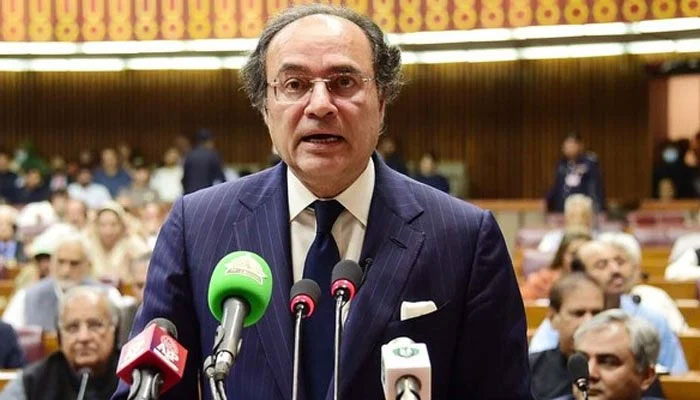Analyzing the budget
LAHORE: The federal budget has created quite a few controversies. While the withdrawal of exemptions has been appreciated by experts, the government’s non-serious approach on privatization and continuation of unnecessary expenditures have irritated many.
Experts also doubt the capability of the government to generate 40 per cent higher revenues this year. The steps taken to bring non-filers into the tax net are appreciable. But while slapping a higher tax of 45 per cent on non-filers on property purchase, the government has also increased the buying tax on filers from 3.0 to 15 per cent. This is not on.
Tax on filers should have been reduced which would have further incentivized non-filers to come into the tax net. The increase in the tax rate for filers indicates that the government is more interested in increasing revenues instead of reforming the system.
Moreover, there should be a mechanism that ensures that registration with the FBR in the tax net should not be for the purpose of availing a service banned for non-filers. There are for instance about a million travellers who make international trips despite remaining outside the tax net. They may go out by filing a one-time tax return but do not file the next year after they are allowed to go abroad. This law would stop job seekers going abroad without a job offer abroad. Human smuggling would be checked if the FBR is assigned the duty of at least confirming the credential of filers.
The finance minister has been clear that the government is serious about not carrying out businesses. He hopes the PIA privatization process will be over by August this year. In the budget, the government has stated that it expects to receive privatization proceeds worth Rs30 billion.
We are not in a position to bear losses of over a trillion by continuing to operate loss-making state entities.The salaried class has been given a rough deal this year. Though the highest tax rate remains static at 35 per cent, the middle-income salaried class will in many cases see their income tax doubled.
The increase has come at a time when salaried persons have faced abnormally high inflation in the past three years with their salaries remaining stagnant, at least in most cases. Government servants have been compensated with an increase in their salaries according to last year’s average inflation of around 25 per cent.
The corporate sector has since long been demanding that the tax impact of an association of persons (AoP) should be higher than that on the corporate sector that pay an income tax of 35 per cent against 25 percent charged from an AOP.
Instead of reducing the corporate tax rate, the government has increased the AOP tax rate by 20 per cent to 45 per cent. Is it an invitation to the tax compliant sector to embrace a grey economy?
There was disappointment for the industrial sector in the budget, particularly exporters who demanded lower power and gas rates. They have been told that they would pay the market rate (that is likely to increase going forward). To add insult to the injury they have now been brought under the normal tax regime. Earlier they were let off tax liabilities by paying around 1.0 percent of their export turnover.
-
 Lewis Capaldi Sends Taylor Swift Sweet Message After 'Opalite' Video Role
Lewis Capaldi Sends Taylor Swift Sweet Message After 'Opalite' Video Role -
 Sarah Ferguson Joins Andrew In ‘forcing’ Their Daughters Hand: ‘She Can Lose Everything’
Sarah Ferguson Joins Andrew In ‘forcing’ Their Daughters Hand: ‘She Can Lose Everything’ -
 'Bridgerton' Author Reveals If Actors Will Be Recast In Future Seasons
'Bridgerton' Author Reveals If Actors Will Be Recast In Future Seasons -
 50 Cent Super Bowl Ad Goes Viral
50 Cent Super Bowl Ad Goes Viral -
 'The Housemaid' Lifts Company's Profits: Here's How
'The Housemaid' Lifts Company's Profits: Here's How -
 Michael Douglas Recalls Director's Harsh Words Over 'Wall Street' Performance
Michael Douglas Recalls Director's Harsh Words Over 'Wall Street' Performance -
 Henry Czerny On Steve Martin Created Humor On 'Pink Panther' Set
Henry Czerny On Steve Martin Created Humor On 'Pink Panther' Set -
 Lady Victoria Hervey: Andrew Mountbatten-Windsor's Ex-girlfriend Proud Of Being On Epstein Files
Lady Victoria Hervey: Andrew Mountbatten-Windsor's Ex-girlfriend Proud Of Being On Epstein Files -
 Huawei Could Revive Chip Technology If US Lets Guard Down, Intel CEO Says
Huawei Could Revive Chip Technology If US Lets Guard Down, Intel CEO Says -
 Dolly Parton Created One Of Her Iconic Tracks With Acrylic Nails?
Dolly Parton Created One Of Her Iconic Tracks With Acrylic Nails? -
 Parents Alarmed As Teens Form Emotional Bonds With AI Companion Chatbots
Parents Alarmed As Teens Form Emotional Bonds With AI Companion Chatbots -
 Denzel Washington Surprises LeBron James
Denzel Washington Surprises LeBron James -
 Cillian Murphy's Hit Romantic Drama Exits Prime Video: Here's Why
Cillian Murphy's Hit Romantic Drama Exits Prime Video: Here's Why -
 Paris Hilton Reveals What Keeps Her Going In Crazy Schedule
Paris Hilton Reveals What Keeps Her Going In Crazy Schedule -
 Deep Freeze Returning To Northeastern United States This Weekend: 'Dangerous Conditions'
Deep Freeze Returning To Northeastern United States This Weekend: 'Dangerous Conditions' -
 Inside Dylan Efron's First 'awful' Date With Girlfriend Courtney King
Inside Dylan Efron's First 'awful' Date With Girlfriend Courtney King




